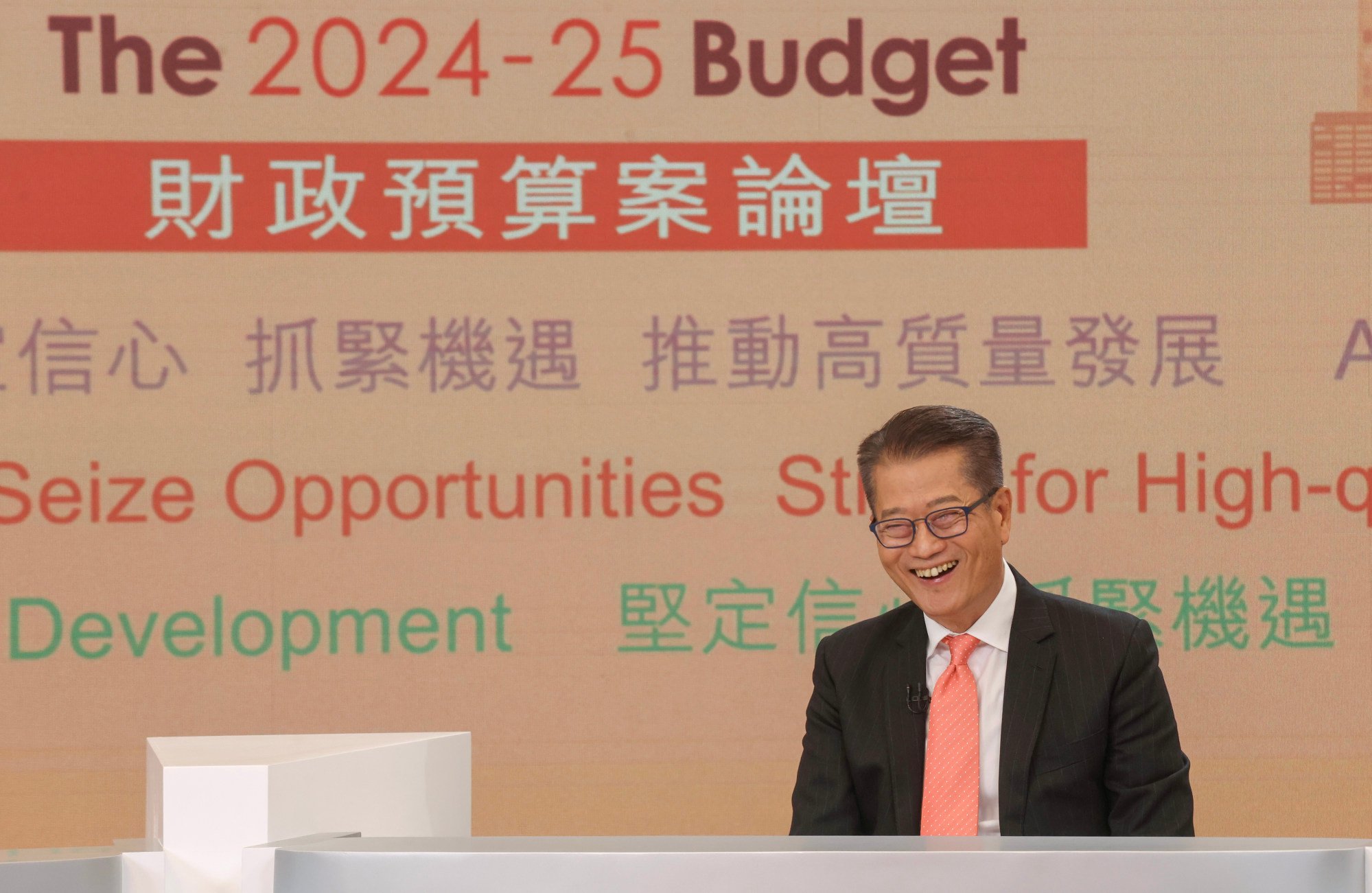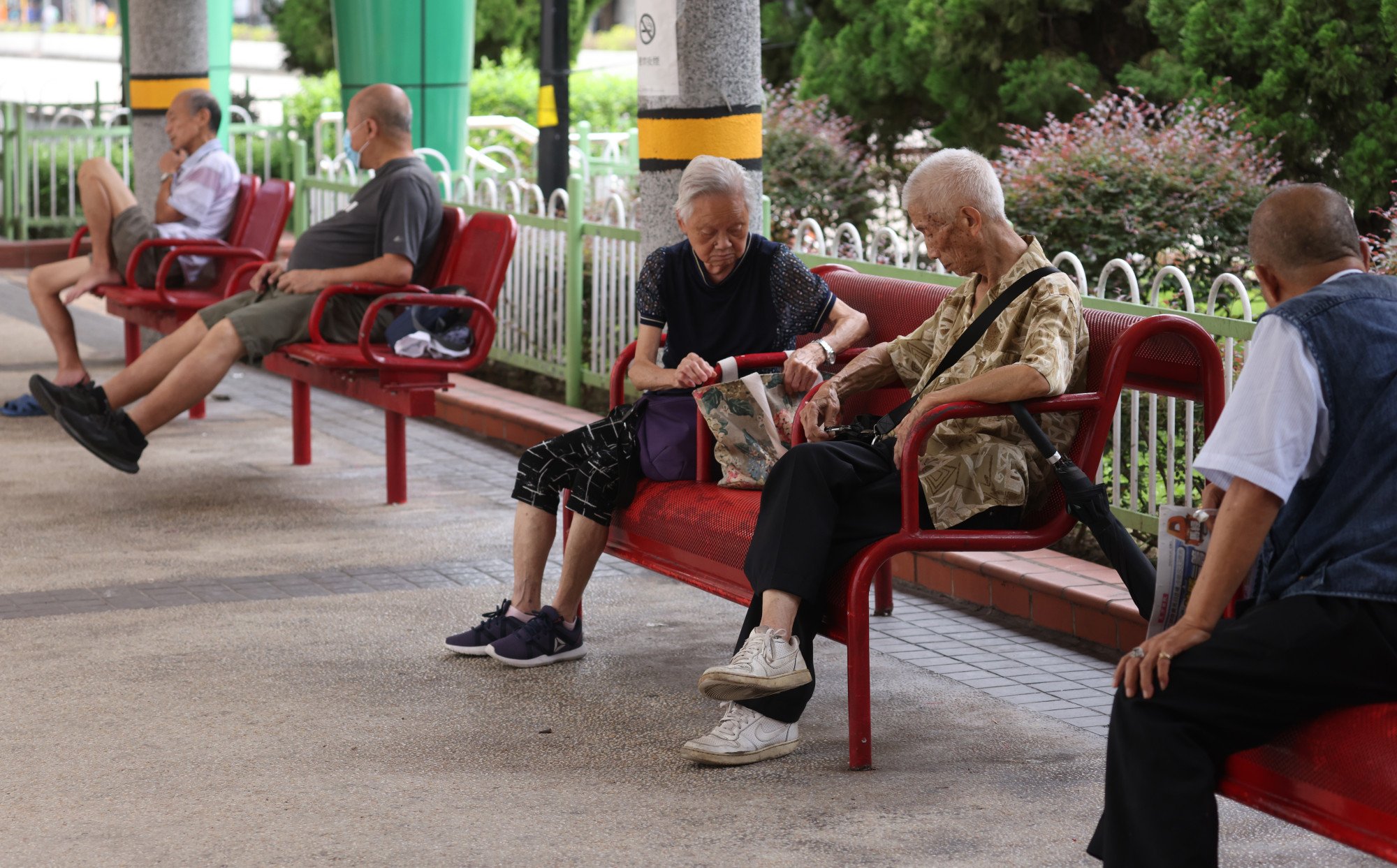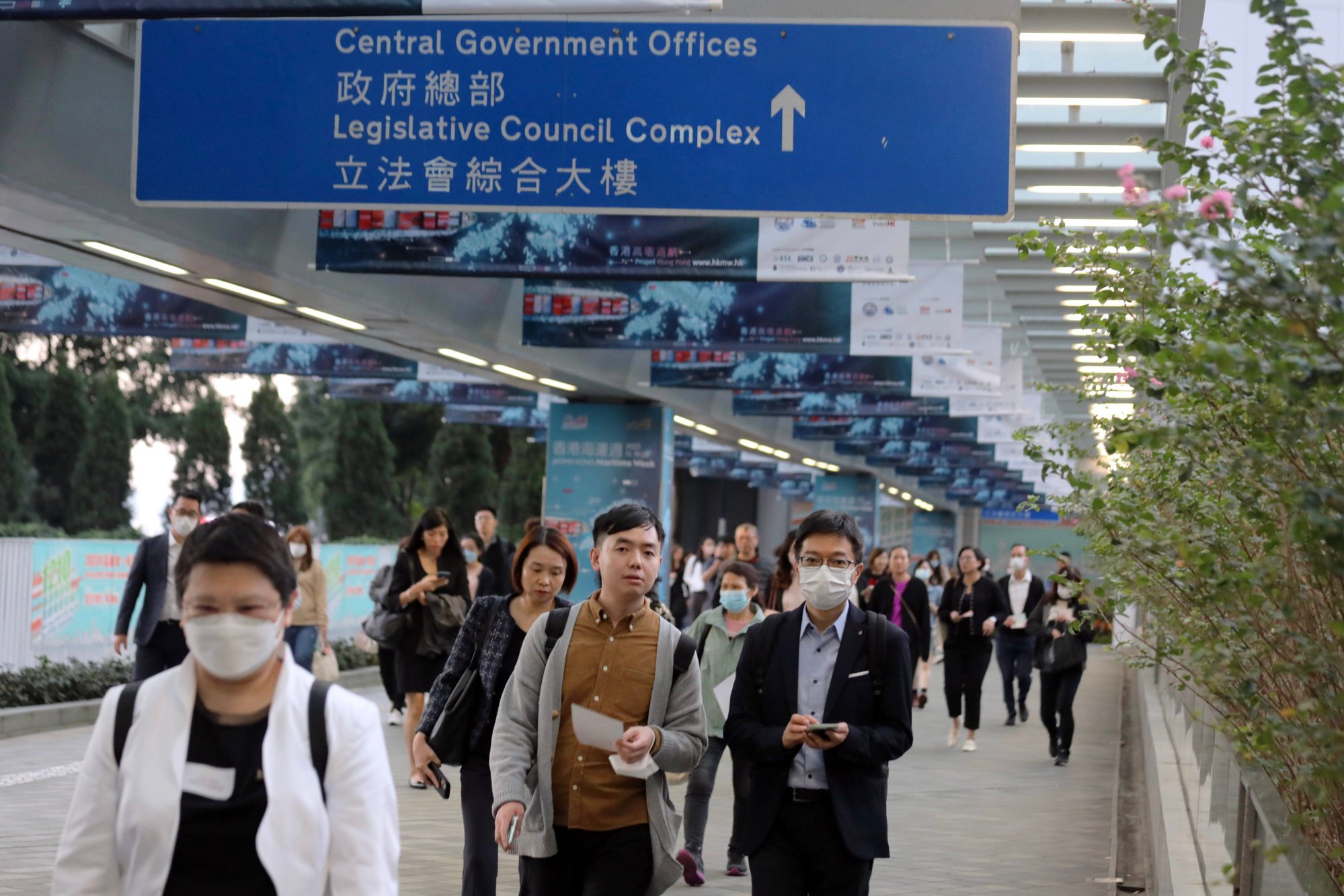
Budget may not be to everyone’s liking but it is a step on the right path for Hong Kong
- Even though the city is in a stronger position now than in recent years, the prevailing crisis of confidence must not be ignored
Beset with a slower-than-expected post-Covid recovery, a ballooning budget deficit and a deepening crisis of confidence, Financial Secretary Paul Chan Mo-po finds himself in an unenviable position as he tries to turn around Hong Kong’s fortunes. While the 2024-25 budget blueprint lacks the usual generous handouts and sweeteners, it has been spiced up with an array of immediate and longer-term economic and fiscal measures that, hopefully, can consolidate the city’s well-being.
But it also means the year ahead will be fraught with uncertainties and challenges.
Having been at the helm since 2017, Chan is well aware of the heavy burden arising from a raft of pressing problems. This includes restoring a balanced budget by raising revenues and cutting spending without adversely affecting businesses and people’s livelihoods, while rekindling local and overseas confidence in the city’s future and fostering economic growth.
While these issues have arguably made this year’s budget his most difficult, Chan must be relieved that the city is gradually putting its worst years behind. The economy is expected to grow at a steady pace of 2.5 per cent to 3.5 per cent in the medium term.

A budget surplus is expected to return by 2025-26, after a staggering HK$101.6 billion and HK$48.1 billion deficit in the current and next financial year, respectively. The fiscal reserves remains at a relatively healthy level of HK$733 billion.
That said, confidence remains weak. The pace of recovery remains uncertain in light of geopolitical tensions and global economic headwinds.
That is why the finance chief has cautiously opted for smaller tax rebates and handouts for welfare recipients this time. There are also no subsidies for electricity bills or consumption vouchers.
While the clamour for more sweeteners is no longer as strong as it used to be, the prudent approach may still disappoint many in society. The additional investments in care for the elderly, children and the disabled is also limited in contrast to the government’s commitment to nurturing a caring and inclusive society.

High-quality development
The government has rightly pushed ahead with some ongoing economic initiatives as well as exploring untapped areas for new growth. This includes establishing the Hong Kong Microelectronics Research and Development Institute to facilitate research collaboration on third-generation semiconductors, and providing more funding to universities for developing artificial intelligence and health technology.
To accelerate high-quality development, Chan also introduced a number of green initiatives in finance, technology, aviation and maritime businesses. Separately, the budget also commits more resources to promote the Hong Kong brand and to bolster confidence. While these measures may take longer to produce economic and social dividends, they are necessary steps to cement the city’s ambition for new growth and green living.
“By charting the course of high-quality development, we will drive further innovations, bring in new services and products, stimulate new demand and open up new markets. This is the necessary path to take for future development,” he said.

Tough decisions ahead
Chan has to make some tough decisions. But he also needs to be mindful of minimising any adverse effects on the community.
In addition to reintroducing a hotel accommodation levy, raising property rates and tax on high income earners, there will also be a review of transport subsidies for seniors.
The budget stopped short of making any decision on civil service pay, but pushed for more aggressive spending cuts and productivity savings for new and improved services across departments. It also sensibly reviewed priorities on spending initiatives and will issue bonds to finance mega projects.
The financial secretary knew well that the government could not avoid addressing vocal calls to scrap controversial cooling measures aimed at reining in property prices. But he defied market expectations by dropping all the measures and further relaxed rules for taking out mortgages as well as adjusting other supervisory policies on property lending.

The cooling measures, he said, were no longer necessary. It is to be hoped that the move can contribute to healthy market development, which in turn will boost sentiment and help raise more revenue for the government through land sales.
Chan said the peach colour of his budget blueprint symbolised the first glimmer of dawn and inspired hope, faith and the longing for greater unity and harmony. But with many of the initiatives not likely to yield concrete results in the short term, the public may continue to feel disappointed.
Even though the city is in a stronger position now than in recent years, the prevailing crisis of confidence must not be ignored. It is incumbent upon Chan to go beyond his blueprint and prove that he is leading the city in the right direction for better development.

